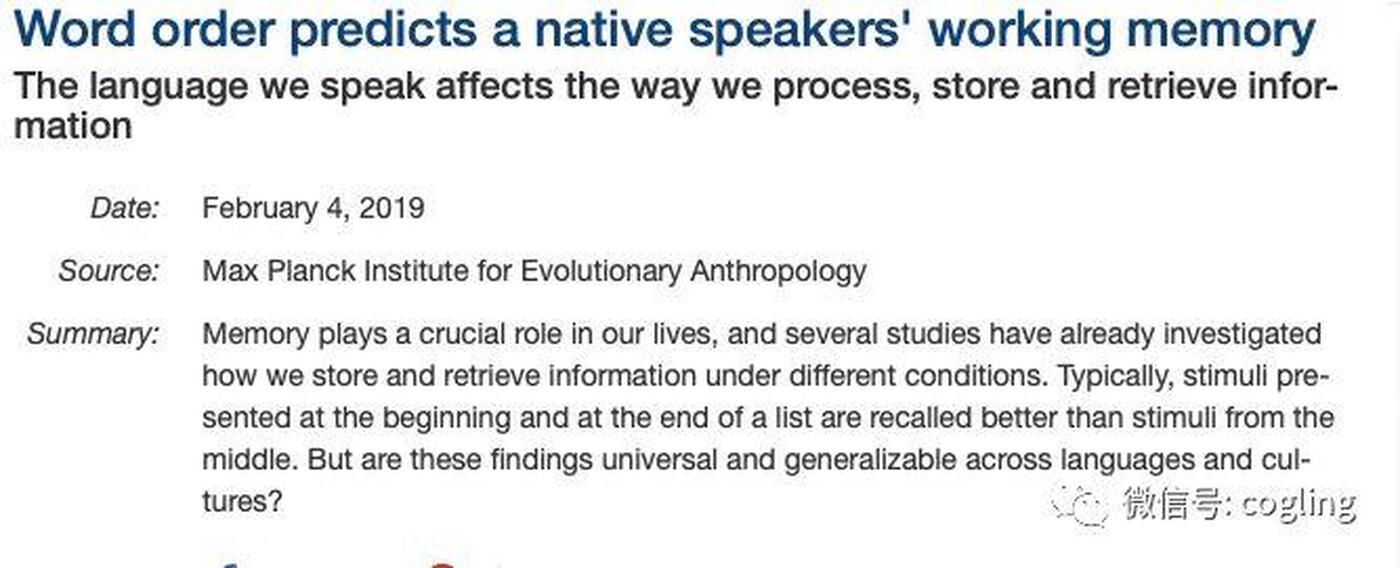原题:Word order predicts a native speakers’ working memory

A new study from the Max Planck Institute for Evolutionary Anthropology suggests that the syntax of a language might influence how a speaker processes and recalls sequential information.

The research team traveled the world to run memory tests in eight different human cultures speaking different languages.
Credit: MPI f. Evolutionary Anthropology
Memory plays a crucial role in our lives, and several studies have already investigated how we store and retrieve information under different conditions. Typically, stimuli presented at the beginning and at the end of a list are recalled better than stimuli from the middle. But are these findings universal and generalizable across languages and cultures?
The group, including psychologists, linguists and biologists from five different countries, traveled across the world to run memory tests in eight different human cultures speaking different languages. “The best part of this project was to cross deserts and seas to reach amazing people speaking the most wonderful languages ever, from Sidaama, to Khoekhoe and Khmer,” says Amici, “and know that these languages may provide them with a unique vision of the world.”
The relationship between language and thought is controversial. One hypothesis is that language fosters habits of processing information that are retained even in non-linguistic domains. Languages, for instance, vary in their branching direction. In typical right-branching (RB) languages, like Italian, the head of the sentence usually comes first, followed by a sequence of modifiers that provide additional information about the head (e.g. “the man who was sitting at the bus stop”). In contrast, in left-branching (LB) languages, like Japanese, modifiers generally precede heads (e.g. “who was sitting at the bus stop, the man”). In RB languages, speakers could process information incrementally, given that heads are presented first and modifiers rarely affect previous parsing decisions. In contrast, LB structures can be highly ambiguous until the end, because initial modifiers often acquire a clear meaning only after the head has been parsed. Therefore, LB speakers may need to retain initial modifiers in working memory until the head is encountered to comprehend the sentence.
来源:ScienceDaily,“阅读原文”浏览全文